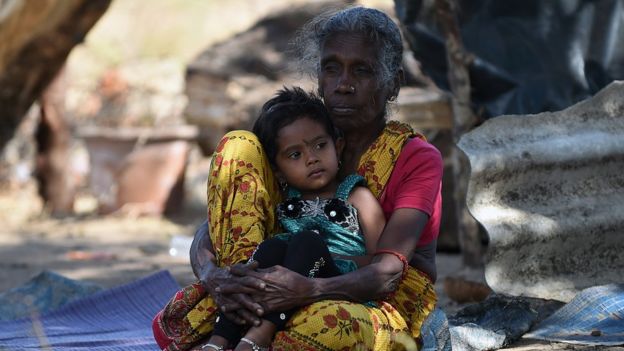By Tyler Campbell
Impunity Watch Reporter, Africa
ALGIERS, Algeria – This Tuesday marked the opening day of the Defence and Security Equipment Industry (DSEI) show. This is one of the world’s largest arms and securities fairs in world and it is held every two years in London. This is a massive event were more than 1,500 companies show off their best and latest weapons of war. On the guest list to the event are some of the biggest repeat offenders in human and civil rights violations.

There were 61 countries officially invited to the event. Out of these 61 countries 14 of them have authoritarian leadership. More troubling is that the UN has flagged 23 of these 61 countries for serious child rights violations, including the use of child soldiers. Notable African countries with questionable human rights records on the list were Egypt, Angola and Algeria.
These invitations come in stark and almost ironic contrast to the message the European parliament was trying to send some of these countries only four days earlier. In debates about the British arms industry parliament talked about Azerbaijan and Angola, two countries with an invitation to the DSEI. The deteriorating situation of human rights in Angola was one topic that got touched upon.
This type of hypocrisy is not a new trend for the British arms industry. Britain has been selling arms to the Democratic Republic of the Congo since 2010. This is one nation that has a long record of recruiting and using child soldiers. Another country, Saudi Arabia, has had its own problems with civil rights and continues to be Britain’s leading arms customer. In past years at the DSEI, devices clearly against British law have even been offered up for sale.
These problems have not gone unnoticed by London protesters. Human rights activist protested and attempted to block the set up of the event. They also have a protest schedule for each day the event is going on. Advertisements on the sides of buses around London have been replaced with “These visitors make huge amounts of money from weapons and equipment that kill people all over the world.”
The other side of the debate continues to say that this event and the British arms industry are important sections of the economy and are essential to jobs and a growing GDP. This is most likely not an understatement. The UK has continued to be the world’s second largest defense exporter, behind only the United States. For this to change it will take aggressive action and legislation by parliament.
For more information, please see:
EurActive – Nations using child soldiers are invited to British arms fair – 14 September 2015
Yahoo News – Mega arms fair met with protest in Britain – 15 September 2015
Defense One – UK Invites ‘Countries of Concern’ To Shop for Weapons in London – 15 September 2015

